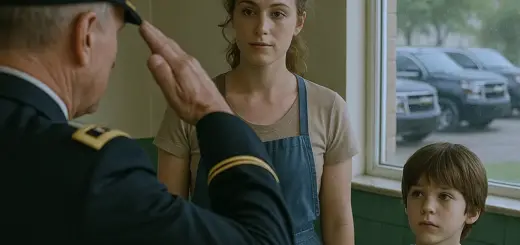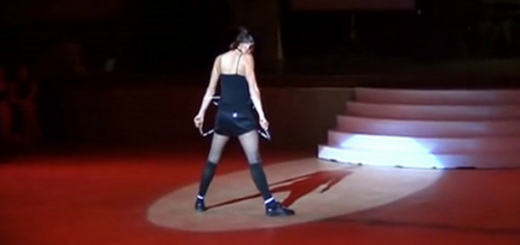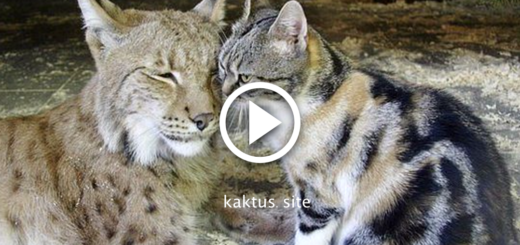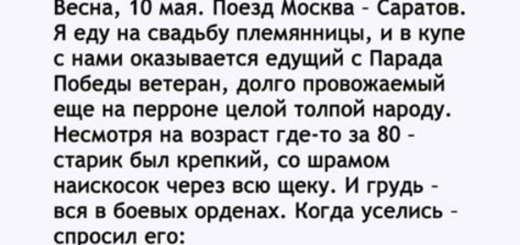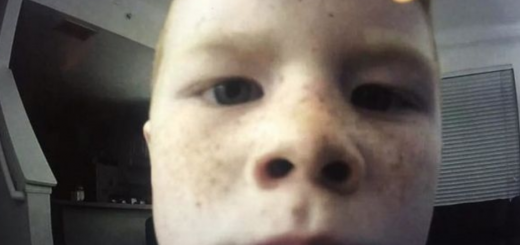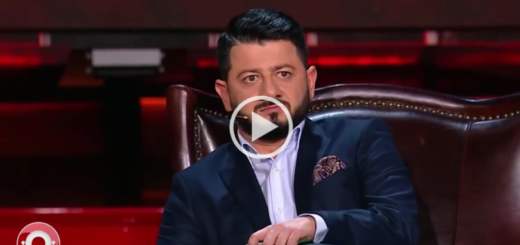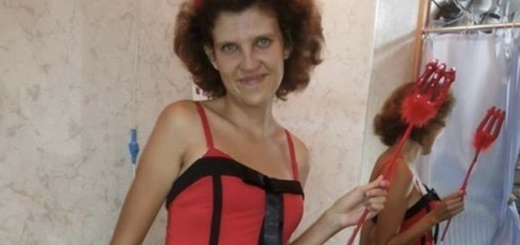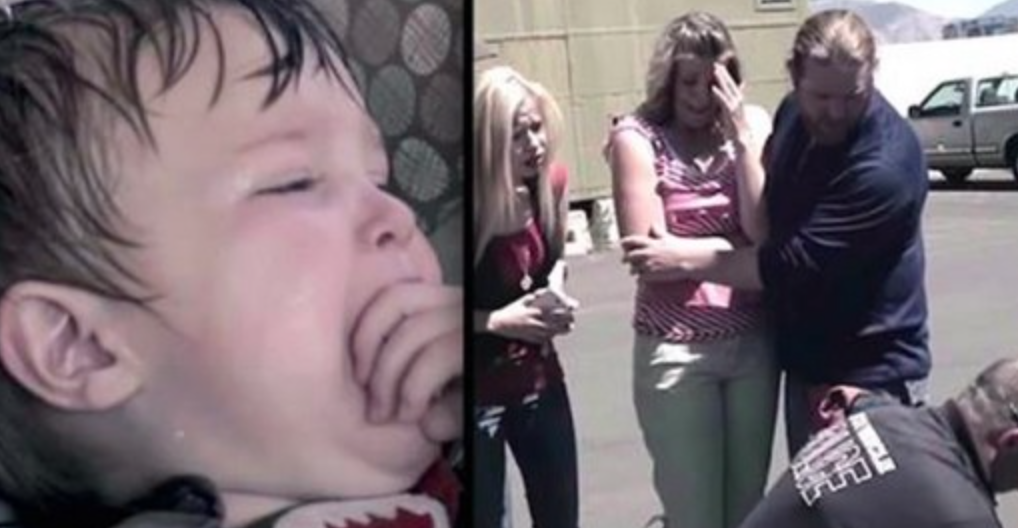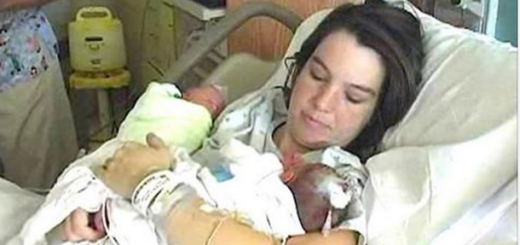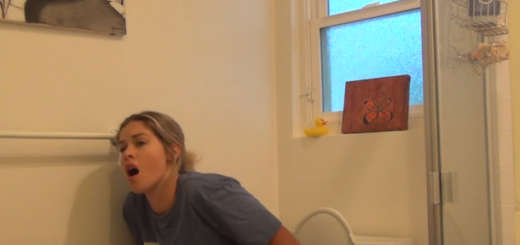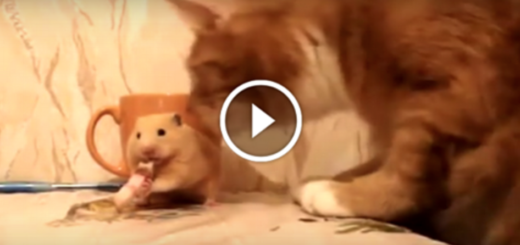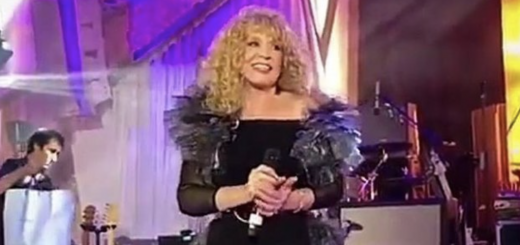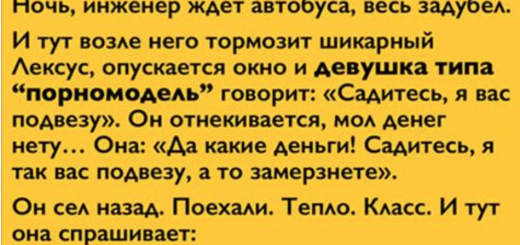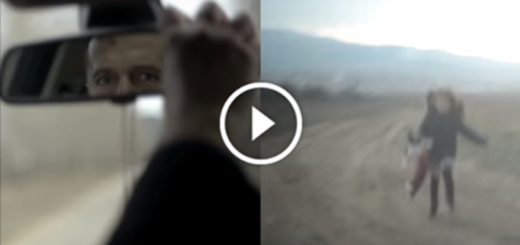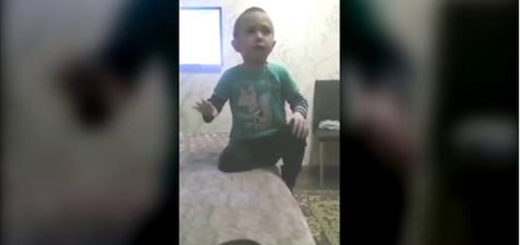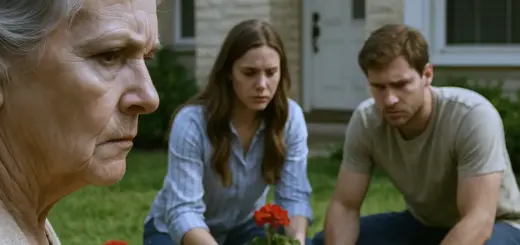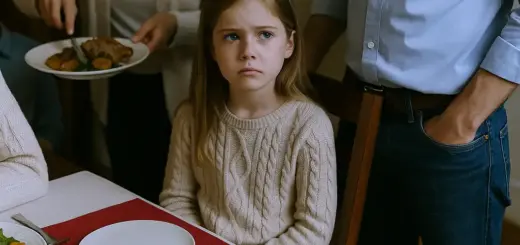My mom forgot a plate for my daughter at Christmas, saying there wasn’t enough because she had upset the golden grandchild. Meanwhile, he got seconds. I didn’t say a word. I took our gifts, and we left. At 9:47 p.m., Dad wrote, «Rent due tomorrow.» I didn’t make a scene.
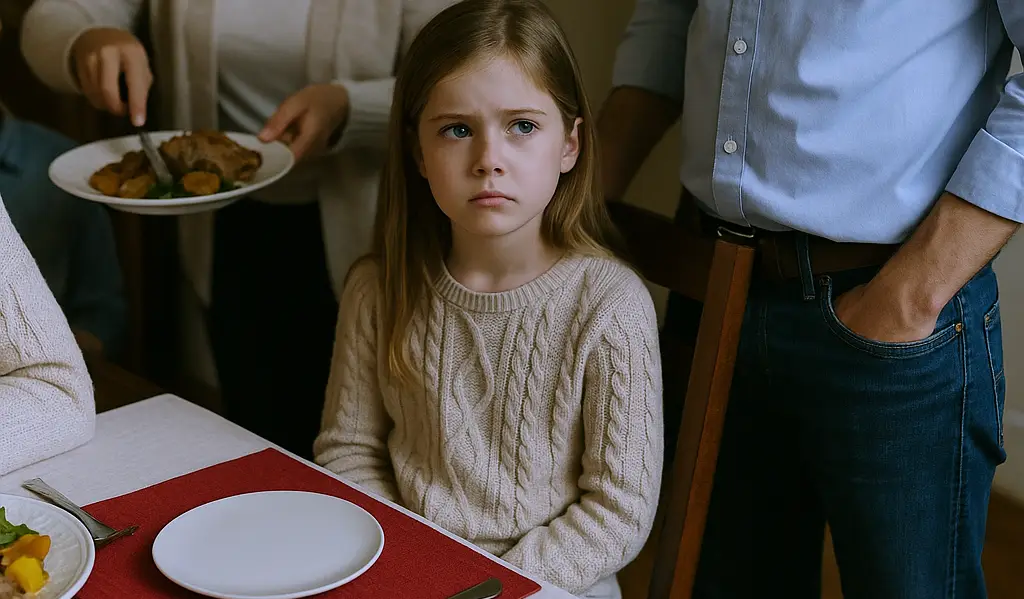
My name is Alex. I’m thirty-five, an IT support lead, an older brother by four years, husband to Sarah, and dad to a seven-year-old named Lily, whom I adopted when she was three. I’m the one who labels the holiday bins, keeps a battery drawer, and shows up early with folding chairs just in case. I don’t drink much. I don’t shout.
I fix Wi-Fi and wobbly tables. My family likes me because I’m useful. Christmas at my parents’ house is a ritual: a plastic nativity that’s older than me, a paper snowman with one eye. Mom’s playlist is the same burned CD from 2008. My brother, Nate, pulls in late with his son, Max—nine and wild, the golden grandchild. Mom calls him «my little man,» as if the rest of us are renters.
We walk in carrying a casserole and cookies. Sarah’s hand is on Lily’s shoulder. Lily brings a wrapped drawing for Nana: stick figures holding hands under a crooked tree. She looks up at me as if to ask, «Is this okay?» I smile. «Perfect.»
«Coats on the chair,» Mom says, bustling. «Shoes off. The floors were just done.»
Dad nods at me. «Help me with the roast, champ.»
Lily peeks into the dining room. The table is set with a red runner, eight plates, and shiny forks. She points. «Where do I sit?»
«Next to me,» I say.
«Everyone, to the table!» Mom claps. She sets a plate in front of Max before he even sits. He’s already chewing, with a second helping waiting on a side dish. He grins like he owns a bank. Lily slides into her chair and looks at the placemat. There’s no plate, no fork—just a bare square with a smear where a candy cane melted last year.
I keep my voice light. «Hey, Mom. We need a place setting for Lily.»
Mom doesn’t look up. «There wasn’t enough. She upset Max, remember?»
Sarah presses her knee against mine. «What?»
Nate shrugs. «She bumped his tower.»
«It was cups,» Lily whispers. «I said sorry.»
Mom waves a hand. «We don’t reward bad behavior.» Max reaches for his seconds, and Mom serves him with a laugh. «Growing boy.»
Lily folds her hands in her lap. Her mouth is a small, tight line. I hear my own voice come out flat. «We’re going to head out.»
Mom’s smile turns sharp. «Alex, don’t be dramatic.»
Nate smirks. «Dude, it’s Christmas.»
I stand. Sarah stands. Lily stands. We take the gifts we brought, still wrapped. No one tries to stop us. Dad watches, quiet as a turned-off TV. On the porch, the air is knife-cold. I open the car, and Lily climbs in, buckling herself without a sound. Sarah’s eyes are wet but calm.
«I didn’t say a word,» I tell myself, my hands on the wheel. «We’re not making a scene.» We pull away, and the house shrinks in the mirror. The burned CD keeps playing behind the door we closed. I don’t check my phone. Not yet.
We adopted Lily after a year of classes, inspections, and forms as thick as bricks. The day the judge banged the gavel, Lily clutched a stuffed fox and whispered, «Am I yours now?» I said, «Forever,» and meant it so hard it hurt. My parents told me they were proud. They took a photo with the judge, which Mom framed and put on a side table between two pictures of Max.
At family dinners, she’d point to the adoption photo like a souvenir from a trip we once took. Nate was neutral about it until he realized adoption didn’t involve baby showers with gift registries. He calls Lily «your girl,» as if there’s a distance he can’t be bothered to cross. Max calls her «not-really-cousin,» which he probably didn’t invent himself.
Money sits on the table in our family the way salt does: always there, used without thinking. When I got my first help-desk job, Mom started texting for quick favors. The internet bill was confusing; the car insurance was time-sensitive. Nate needed a bridge loan between bartending shifts. Dad’s back went out, and suddenly I was covering his expenses for a month, which stretched to three.
Sarah is a nurse who sometimes works nights. We don’t swim in money, but we plan. We say no to vacations and yes to dental work. We budget. We refill our savings with a scoop the size of a spoon.
Every December, the choreography repeats. Mom assigns dishes and slips in a big-ticket item for us because we’re «reliable.» Turkey once. Ham twice. «You get points on your card,» she says, as if points are a currency we can use to feed our kid. When I ask to split the costs, Mom’s voice gets soft. «Don’t make this about money, sweetheart.»
Nate gets loud. «Dude, I’m between gigs.» He’s been between gigs for three years, but Max never seems to run out of new shoes.
Before Christmas this year, Mom called with her cheerful voice. «Can you grab the roast? And the good napkins, the ones with the gold edge? And wine—two reds, one white. Oh, and plates. Ours are chipped. You know where to find a deal.»
I said, «We can bring sides and dessert. That’s our cap.»
She went quiet for a beat. «It’s Christmas, Alex. Don’t nickel-and-dime the season.»
Sarah squeezed my hand. I said, «We’ve got our own bills.»
Nate chimed in on the family chat, «Don’t start,» followed by a photo of Max at a trampoline park captioned, «Worth it.» Two days later, Dad sent a screenshot: «Utilities went crazy this month,» with a number that looked round and fake. I asked for the bill. He wrote back, «It’s complicated,» which is his shorthand for, «Don’t ask questions.»
We kept our heads down. Lily made cards for everyone with stick-on stars and the word «Nana» spelled «Nona.» She practiced a little «Merry Christmas» speech because she likes speeches now; school does that to kids. That morning, setting out Lily’s tights, I thought, «We can survive one dinner. Smile, nod, and leave at a normal time. Don’t be the problem.»
At the house, the first hit came quickly: «There wasn’t enough.» Lily’s empty spot. Max’s seconds. The whole room bending around one child like gravity. I felt the old thing crawl up my spine—the part of me that runs interference, that says, «Fine, I’ll fix it, just stop yelling.» But then I looked at Lily’s hands, folded like a prayer, and something even older woke up. We left.
Back home, I heated chicken nuggets. Sarah added carrot sticks. We ate on the couch under a blanket that smells like laundry soap. Lily watched a movie, providing the running commentary that kids do. «Look, a dog!» She didn’t mention the table. She didn’t ask why. After she brushed her teeth and curled up with the fox, I checked my phone.
Nine missed calls from Mom. Four from Dad. Two from Nate. A new family chat banner: «We need to talk about Alex.» A text from Mom: «Please don’t embarrass us with a scene.» I hadn’t said a word. At 9:47 p.m., Dad finally texted me directly. «Rent’s due tomorrow.»
That was new. Not a reminder. Not «we’re tight.» Not «can you help.» Just a sentence that assumed my wallet belonged to him. I stared at the screen. Sarah saw my face. «What now?» I held up the phone. She closed her eyes and exhaled. «Of course.»
We didn’t answer. We put Lily to bed, turned off the tree lights, and sat at the small kitchen table that we had paid for with a coupon and a weekend of sanding. «Tomorrow,» Sarah said. «We handle it tomorrow.» She didn’t mean the rent. She meant the pattern.
I lay awake longer than I should have, replaying Lily’s hands on a bare placemat and the way my mother looked at me when I asked for a plate, as if I’d asked her to split the ocean. Around midnight, my phone buzzed again. It was Nate, in the group chat. «Bro, you made Max cry. Pay the rent and stop being weird.» My thumb hovered. I put the phone face down. I slept. Not well, but I slept.


